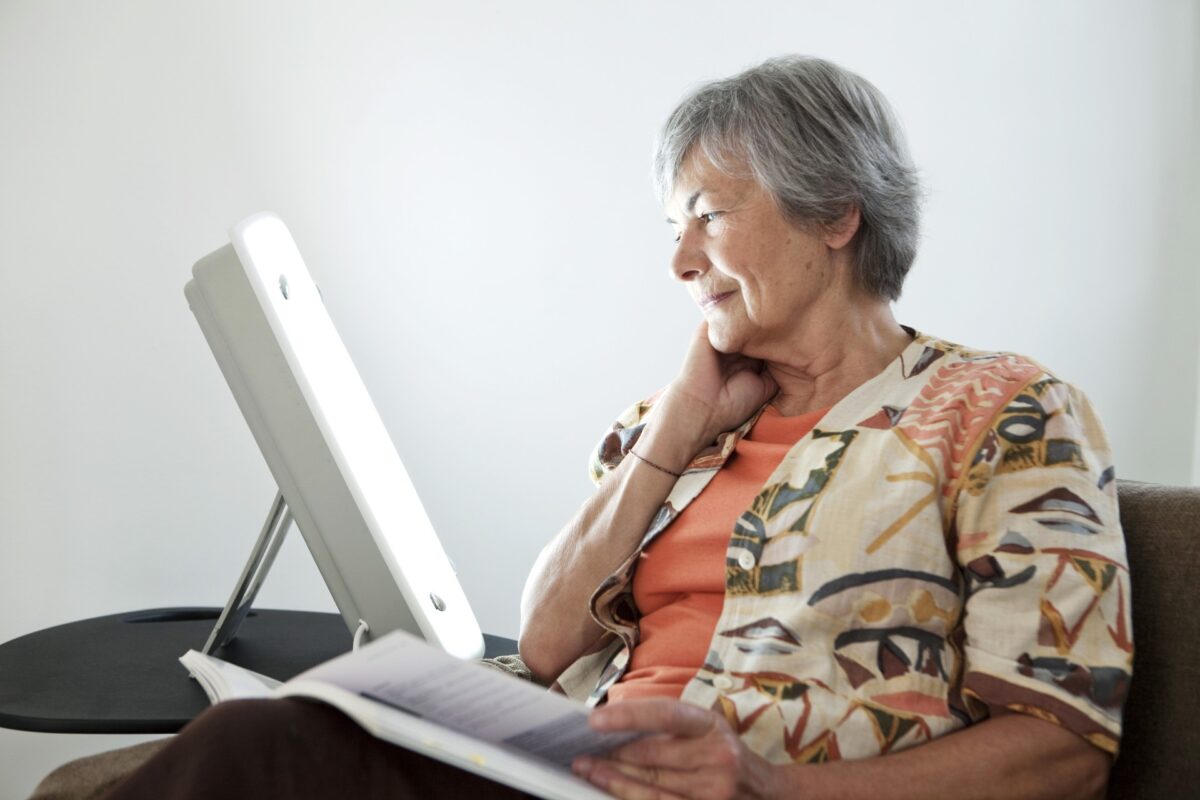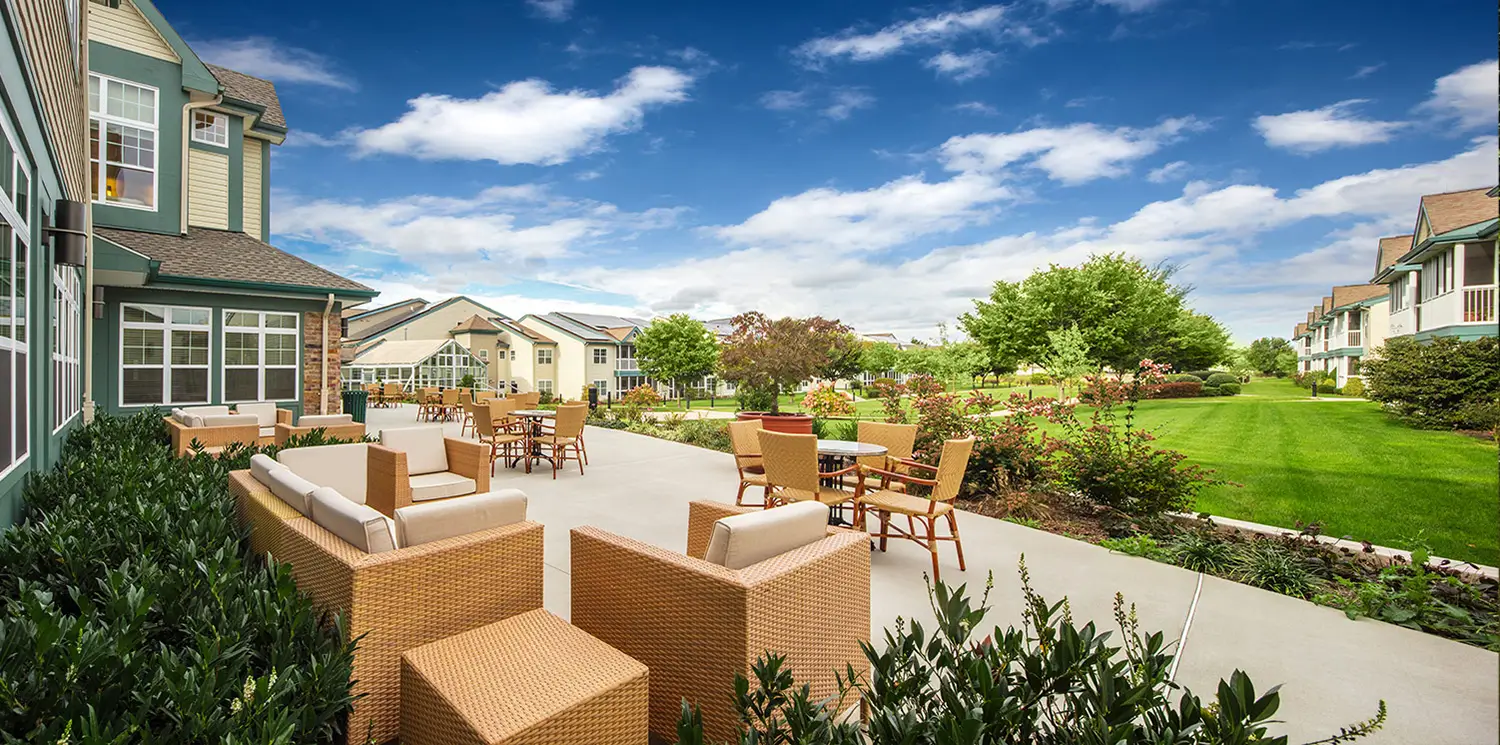Everything You Need to Know about SAD and How Light Therapy Works
January 12, 2022
Dreary winter days may get you down in the dumps, but if you’re feeling down for an extended period of time, you may be experiencing seasonal affective disorder. The changing seasons can affect everything from your mood to your cognitive abilities, but certain therapies can help reduce the impact so you can get back to enjoying your retirement year-around.
What is seasonal affective disorder?
Seasonal affective disorder, which you may also hear referred to as SAD, is a form of depression related to the seasons, usually fall and winter (although a less common form of seasonal affective disorder affects some people in late spring and early summer).
Holiday stress and the emotional toll of spending the holidays without loved ones who have passed can contribute. However, changing daylight patterns may play a role by affecting brain chemicals and hormones, including less feel-good serotonin and more melatonin, which is produced by the body when it’s dark and contributes to sleepy feelings.
Women are more likely than men to experience seasonal affective disorder. While it’s common in younger adults, seasonal affective disorder and seniors can also go hand-in-hand, especially if health conditions or limited mobility keep you from being as active as you’d like to be when temperatures drop and sunny days become less frequent.
What are the symptoms of seasonal affective disorder?
Seasonal affective disorder is more than feeling stressed, cooped up, or restless; it affects your ability to enjoy life. Many of the symptoms of seasonal affective disorder mimic other mental health conditions. Some common symptoms include increased sleep or drowsiness, less pleasure in activities you once enjoyed, social withdrawal, irritability, anxiety, guilt, hopelessness, trouble concentrating or thinking clearly, cravings for sweets and carbs, weight gain, and headaches.
One notable difference is symptoms that reoccur in a consistent pattern each year. Diagnosing seasonal affective disorder may take more time than other mental health disorders in part because symptoms are similar to numerous other conditions, but also because, by definition, it only occurs seasonally. Monitoring how your symptoms change with the seasons and whether they resume at the same time each year will help your provider make a diagnosis. In the meantime, therapies and treatments may provide some relief for your seasonal depression.
How do you treat seasonal affective disorder?
In some cases, treating seasonal affective disorder is much like treating other forms of depression. Antidepressant medications can be helpful, although only one medication (bupropion XL) is FDA-approved specifically for seasonal affective disorder treatment.
However, there is another treatment option that can be quite effective. Recognizing how light and darkness affects the body’s chemical and hormone levels, some doctors recommend getting more light exposure by getting outdoors, especially in the mornings, or relying on light therapy, which may be able to nudge your body to function more like it does during the brighter months.
How does light therapy work?
During light therapy, sometimes called phototherapy, you sit near a light box that emits natural or full spectrum light that mimics the same light found outdoors (although it’s important to avoid looking directly at the light to prevent damage to your eyes). Most initial sessions are in the 10- to 15-minute range but can increase up to 45 minutes a day if needed.
The results depend on the intensity of the light, duration of the session, and timing (the most effective treatments tend to be in the mornings). While light therapy isn’t a cure for seasonal affective disorder, it can improve symptoms within a few treatments. Your doctor can help you review the risks and any potential concerns, like skin conditions or light sensitivities, that would make you a poor candidate for the treatment.
We Have an antidote for the winter blahs!
At our Life Plan Community in Skillman, New Jersey, a robust activities schedule and engaging amenities ensure you’ll have plenty of options for passing the winter months doing things you enjoy, whether on your own or in the company of like-minded seniors living nearby. Make plans to stop in at Stonebridge at Montgomery and discover how making a change can help you weather the long, cold months in better spirits.




